PhD in EMSI
The PhD in Economics and Management of Sustainability and Innovation is a 3-year international program designed for highly qualified and motivated students who wish to acquire the research and analytical skills in business and managerial disciplines related to the management of sustainability and innovation.
The program provides students with solid methodological bases and the ability to design and implement research projects in economic and business disciplines, with a peculiar focus on sustainability (e.g., corporate sustainability, sustainable development, environmental management, social entrepreneurship), and innovation (e.g., social innovation, technological innovation, innovative business models).
The program is structured as a mix of full-time courses, field projects, research stages at leading international universities, interactions with teachers and scholars, and a tutored dissertation project. It is designed for students seeking jobs in academia as well as those who wish to acquire the skills of professional academic research to work outside the academia in different industries as entrepreneurs, managers as well as professional consultants.
LUM University encourages students with a clear research attitude to apply for the admission. The PhD program in Economics and Management of Sustainability and Innovation is on a progressive path to becoming a leading program worldwide in business and managerial disciplines related to the management of corporate sustainable strategies.
Director of the PhD Program is Prof. Angeloantonio Russo
Administrative assistant is Dr. Mariateresa Santaloia
Mission & Vision
The mission of the PhD program in Economics and Management of Sustainability and Innovation is to build a premier international hub for research and education in sustainability and innovation, thereby catalyzing and inspiring positive transformations across academia, enterprises, public institutions, and society as a whole.
The PhD program in Economics and Management of Sustainability and Innovation is established with the vision of fostering a vibrant and inclusive academic environment that stands at the forefront of advancing knowledge and expertise in the realms of sustainability and innovation. The program aims to cultivate a new cadre of researchers and professionals, armed with the requisite skills to tackle the most urgent global issues concerning sustainable development, digitalization, and innovation among others.
Through an interdisciplinary and research-driven approach, the PhD program in Economics and Management of Sustainability and Innovation seeks to cultivate a profound understanding of the intricate interplay between sustainability and technological progress. It endeavors not only to impart a robust methodological foundation but also to nurture students’ capacity for critical and creative thinking, essential for addressing emerging challenges.
Admission and information
LUM University encourages applications from international students. It values their presence in the program as an important contribution to its diversity and intellectual richness. While the program is designed to specialize students in one field of business administration and management, it provides them with the interdisciplinary knowledge that is welcome in the administrative and managerial sciences.
Throughout the program students will find an atmosphere congenial to scientific research and to participation in the international scientific debate. The PhD thesis is expected to show an autonomous ability to identify problems, and to design and conduct original research. It is expected that students will produce articles publishable in international journals.
19.07.2024
Announcement of the XL cycle. The announcement is even published on the LUM website, on Euroaxes and on Italian University Ministery websites as foreseen by the regulations in force.
Deadline for the presentation of the application form: August 26th 2024
The date of the exam is set on September 5th, 2024, at the Rectorate of this University – Doctoral Office – S.S. 100 Km. 18 70010 Casamassima – Bari (Italy).
30.08.2024
Commission appointment decree (click here)
03.09.2024
Minute nr. 1 – Criteria of evaluation (click here)
Minute nr. 2 – EVALUATION OF THE QUALIFICATIONS AND RESEARCH PROJECTS – ADMISSION OF THE CANDIDATES AND CALENDAR FOR ORAL EXAM (click here)
The Oral exam will be on September 5th, 2024, 9.00 am at Room 1 Rectorate building
11.09.2024
- Decree of approval of the procedure’s acts (click here)
- Final ranking (click here)
Any further changes will be published on this site, without further notice.
Person in charge of the procedure
Dott.ssa Mariateresa Santaloia – santaloia@lum.it
Tel.: 080-6978219 – Fax: 080-6977122
For any information
Dott.ssa Mariateresa Santaloia – santaloia@lum.it
Tel.: 080-6978219 – Fax: 080-6977122
Info for current students
Please find in this section useful documents and tools for PhD students enrolled in the program
PhD research funds
Starting from the second year, each PhD student is assured, in addition to the scholarship and within the financial resources existing in the budget, a budget for research activities of no less than 10 percent of the scholarship amount. The same budget is assured also to PhD students who do not hold a scholarship.
Typically, PhD students can access their research funds for:
- participation in conferences, seminars, and workshops (e.g., conference registration fee, membership fee, transport, food, lodging) for the presentation of articles and/or working papers included in the conference program;
- correction and revision (proof-editing) of texts in a foreign language for subsequent submission to conferences and/or journals;
- individual and non-subscription software licenses for scientific research;
- participation in conferences, seminars and workshops (e.g., conference registration fee, membership fee, transport, food, accommodation) of relevance for the scientific sector of the PhD student, to the maximum extent of one participation per year, even in the absence of scientific works to be presented;
- participation in educational activities provided by external entities (e.g., summer school, training programs, etc.) for a limited period (e.g., once a year).
Access to research funds requires the prior authorization of the Coordinator of the program by filling in Annex 5.
Faculty
The Faculty of the program is composed by the Coordinator of the PhD, who is responsible for the organization and overall functioning of the PhD program, and Faculty members involved in the courses of the PhD program.
The Director of the PhD also chairs and coordinates the activities and meetings of the PhD Teaching Staff Council.
Coordinator
The Faculty of the program is composed of the Coordinator of the PhD, who is responsible for the organization and overall functioning of the PhD program, and Faculty members involved in the courses of the PhD program.
The Coordinator of the PhD also chairs and coordinates the activities and meetings of the PhD Teaching Staff Council.
Full Professor of Management Rector Delegate for Research and Sustainability
Contacts
https://sites.google.com/lum.it/russo/home
russo@lum.it

Teaching Staff Council
As from the last activated cycle of the PhD in Economics and Management of Sustainability and Innovation, accredited in 2023 by the Italian Ministry for University and Research, members of the PhD Teaching Staff Council are:
- Candida BUSSOLI – LUM University
- Pasquale DEL VECCHIO – LUM University
- Paolo ESPOSITO – University of Sannio
- Lucrezia FATTOBENE – Tor Vergata University
- Antonello GARZONI – LUM University
- Lucio LAURETI – LUM University
- Francesco MANFREDI – LUM University
- Massimo MARIANI – LUM University
- Arcangelo MARRONE – LUM University
- Domenico – MORRONE – LUM University
- Nicola RAIMO – LUM University
- Michele RUBINO – LUM University
- Angeloantonio RUSSO – LUM University
- Giovanni SCHIUMA – LUM University
- Giustina SECUNDO – LUM University
- Filippo VITOLLA – LUM University
Faculty members
Faculty members involved in the teaching activities of the PhD program are:
- Candida Bussoli, Full Professor of Banking, LUM University
- Danilo Conte, Teaching Fellow of Banking, LUM University
- Riccardo De Blasis, Assistant Professor of Quantitative Methods, Polytechnique University of Marche
- Paolo Esposito, Associate Professor of Business Administration, University of Sannio
- Antonello Garzoni, Full Professor of Business Administration, LUM University
- Massimo Mariani, Full Professor of Finance, LUM University
- Domenico Morrone, Associate Professor of Management, LUM University
- Jane Paunkovic, Full Professor of Organizational Behaviour, Megatrend University
- Nicola Raimo, Associate Professor of Accounting, LUM University
- Angelo Rosa, Teaching Fellow of Organization, LUM University
- Michele Rubino, Full Professor of Accounting, LUM University
- Angeloantonio Russo, Full Professor of Management, LUM University
- Rosamartina Schena, Assistant Professor of Management, LUM University
- Giovanni Schiuma, Full Professor of Managerial Engineering, LUM University
- Giustina Secundo, Full Professor of Managerial Engineering, LUM University
- Pier Luigi Toma, Assistant Professor of Econometrics, University of Salento
- Filippo Vitolla, Full Professor of Accounting, LUM University
PhD Students
PhD students are regularly enrolled at the first year, second year, and third year of the program based on the requirements indicated in the Regulation Statement of the program.
Job market candidates are the PhD candidates who have regularly completed the third year of the program, waiting for the final defense of their PhD thesis.
PhD Alumni have completed the program throughout the past years, having a position in the academia and business as well.
First Year
PhD students regularly enrolled at the first year of the program (40 cycle) are:
fiore.phdstudent@lum.it
CV Sabrina Fiore
Research interests
Corporate Social Responsibility; Double Materiality & Sustainability Reporting under the CSRD; SMEs' Sustainability Integration; Sustainability Enabling Technologies
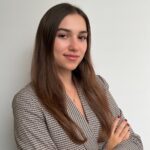

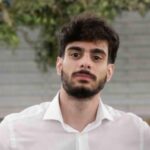
valenzano.phdstudent@lum.it
Research interests
Behavioral and Neurofinance, focusing on decision-making processes and influencing factors in financial markets; Crowdfunding dynamics and the role of demographic and behavioral variables; Ethics and misconduct in the banking sector and their broader implications; Corporate Social Responsibility (CSR) and its intersection with innovation and financial performance
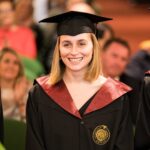
Second Year
PhD students regularly enrolled at the first year of the program (39 cycle) are:
Third Year
PhD students regularly enrolled at the second year of the program (38 cycle) are:
Contacts
anobile.phdstudent@lum.it
Research Interests
Macroeconomics & Monetary Economics - Environmental Economics - Innovation - Microeconomics
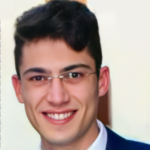
Contacts
blasi.phdstudent@lum.it
https://sites.google.com/lum.it/federicastellablasi/home
Research Interests
Project Management - Innovation and Sustainability Management - Digital Transformation in the Agrifood Industry

Contacts
mastrorocco.phdstudent@lum.it
https://sites.google.com/lum.it/mastroroccoilaria
Research interests
Internationalisation of the University system - Ethics, Sustainability and Human Rights - Non-financial reporting - ESG rating and ESG disagreement - Green innovation and social behaviour
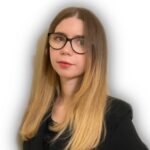
Job market candidates
Job market candidates regularly enrolled in the program (37 cycle) are
Contacts
frascati.phdstudent@lum.it
https://sites.google.com/lum.it/domenico-frascati
Research interests
- Corporate Finance - Sustainable Finance - Behavioural Finance - Impact Investing
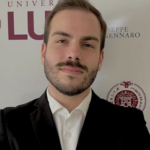
Contacts
labate.phdstudent@lum.it
https://sites.google.com/lum.it/labate/home
Research interests
- Corporate disclosure - Intellectual capital - Circular economy
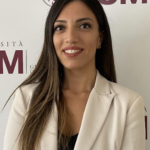
Contacts
posa.phdstudent@lum.it
https://sites.google.com/lum.it/posamichele/home-page
Research interests
- Business Model Innovation - Strategic Management - Sustainability - Strategic Innovation
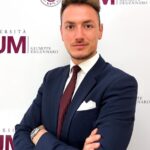
PhD Alumni
Cycle 36
ANGELA RELLA
Research interests
Performance Measurement – Public Sector Accounting – Efficiency – Transparency – Public Sector
ANNA RITA DIPIERRO
Research interests
-Machine Learning applications to Quality issues – Efficiency and productivity analysis – Quality of Government – Econometrics
FRANCESCO D’ERCOLE
Research interests
– Corporate Finance – Sustainable Finance and Climate Risk – Real Estate Finance
CHIARA COLAMARTINO
Research interests
– Econometrics, statistical methods, efficiency, and productivity analysis – Sustainability – Marketing – Mobility, tourism, transportation, and logistics
MARCO BARONE
Research interests
– CSR in Banking – ESG investments – Behavioural Finance – Neurofinance
VEBINA RESULI
Cycle 35
VALENTINA BATTISTA
Research interests
– Public Governance – Cultural Management – Innovation Management – CSR and Sustainable Development – Strategic design for cultural Heritage
DOMENICO DE FANO
Research interests
– Consumer behaviour – Peer to peer form of exchange – Sustainability – Information management
MARCO MARIA MATARRESE
Research interests
– Digital Economy – Public Debt – New Growth Economy
NOMAN MUSTAFA
Research interests
Environmental Corporate Social Responsibility- Sustainability- Social Issues in Management- Darkside of Organizational Behavior- Environmental Leadership
ZUBAIR AHMAD
Research interests
Corporate Social Responsibility – Innovation Management – Green Behaviour – Green Purchase intentions
ANNUNZIATA TARULLI
Research interests
– Sustainability and CSR practices – SDG actions in business – Technology Development – Consumer Behavior – Data analysis
Cycle 34
KLEDJA CANAJ
Research interests
– Sustainability and CSR practices – SDG actions in business – Technology
LAVINIA CONCA
Research interests
– Statistical, econometric, and mathematical models – CSR of financial and non-financial companies – Non-financial disclosure – Sustainability Reporting
FRANCESCO MANTA
Research interests
– Management of natural resources: efficiency in production processes – Green Marketing and Consumer behavior: eco-labeling, green washing – Intellectual Capital and Sustainability
BOJAN RADISIC
Research interests
– Foreign Direct Investments – International Business and Economic Development – Mergers and Acquisition’s – Strategy Development – Economic Analysis – Belt and Road Initiative Investments – Asian management
Cycle 33
EMANUELE DORONZO
Research interests
– Corporate Finance – Impact Investing – International Finance – Risk management strategy – Asset Allocation strategy
NICOLA RAIMO
Research interests
– Non-financial disclosure – Sustainability Reporting – Integrated Reporting – Intellectual capital disclosure
ROSAMARTINA SCHENA
Research interests
– Innovation management – Strategic alliances – Exploration and exploitation, Ambidexterity – Corporate sustainability (CS) & Business Ethics – Corporate social responsibility (CSR) – Stakeholder Orientation – Green consumer behaviour
MARIANNA ZITO
Research interests
– Sustainable Finance – Environmental Finance – Real Estate Finance – Islamic Finance
Cycle 32
MARIJA STANKOVIC
Research interests:
Social Entrepreneurship – Sustainable Development – Circular Economy – Economic Growth – Income Inequality
DANILO CONTE
Research interests:
CSR in Banking – Ethics in Finance – Trade credit – Credit Risk
ANNALISA LEUZZI
Research interests:
Family business and internationalization – the globalization of wine family companies and the preservation of authenticity – CSR and sustainability – Agrifood and wine sector
Cycle 31
ALESSANDRA CARAGNANO
ANASTASIA GIAKOUMELOU
GIULIA NETTI
Cycle 30
DARKO MILOSEVIC
FELICE PETRUZZELLA
Cycle 29
• Amoruso Paola. Born in 1990, Bari (Italy). Research interests: Sustainable management, Water resources, Stakeholder perspective and participation for environmental management.
• Debellis Francesco. Born in 1988, Monopoli (Bari, Italy). Research interests: International Strategic Alliances, Entrepreneurship and Strategic Management, Competitive intelligence and Industry Analysis.
• Loncar Dejan. Born in Belgrade (Serbia) and lives in Geneva (Switzerland). Prior to joining The Global Fund in Geneva in capacity of Strategic Investment Adviser served at the UNAIDS, WHO and IOM. Research interests: energy efficiency, strategic investments and cost effectiveness, global warming.
• Vastola Vincenzo. Born in 1989, Bari (Italy). Research interests: Energy and Environmental Economics, Economic growth and distribution, Economics and Policy, Wealth Economics.
Cycle 28
• Calace Donato: Born in 1988, Acquaviva delle Fonti (Italy). Research interests: Sustainable Development, Corporate Social Responsibility, Non-financial Reporting, Networking, Innovation. Google Scholar profile Scholarship offered by P.O. Puglia FSE 2007/2013 Asse IV Capitale Umano.
• De Turi Ivano: Born in 1986, Bari (Italy). Research interests: Entrepreneurship, technology transfer, innovation, University networks, academic spin offs, regional development.
• Menza Gianpiero: Born in 1986, Grottaglie (Italy). Visiting scholar at Harvard University (2013) UNDP – United Nations Development Programme (2014). Research Interest: CSR-Corporate Social Responsibility, Corporate Sustainability, Cross Sectoral Partnerships, Sustainable Development, innovation and business development, Renewable Energy.
• Miglietta Pier Paolo: Born in 1987, Nardò (Italy). Research interests: Sustainability Assessment, Environmental indicators, LCA, Foot-printing, Agricultural and Natural Resource Economics, Water, Internationalization.
• Riggio Mariateresa: Born in 1987, Bari (Italy). Research interests: Networking, Innovation, Internationalization, SMEs network, Formal Contract, Coopetition. Scholarship offered by P.O. Puglia FSE 2007/2013 Asse IV Capitale Umano.
Cycle 27
• Ricciardelli Alessandra: born in 1980, she holds a Master of ScIence in Development Studies at the University of Oxford in 2004. Phd in Economics and Management of Natural Resources at LUM University where she lecturer in Economics and Management of Smart Cities. Working in the LUM School of Management as Scientific Coordinator of several post-graduate Master courses related to Public Administration issues, she is EY Advisory’s consultant for local development. From 2019 she is Researcher at Scuola Nazionale dell’amministrazione – Presidenza del consiglio dei Ministri. She is also Visiting Scholar at MIT Media Lab. Her research interests are: social organisations, social networks, public governance, Smart Communities, social living labs
• Ivone Massimo: Born 1965 in Rutigliano (Ba) – Italy
• Lalic Goran: Born in Serbia
• La Torre Maura: Born in 1980, Penne (Pescara, Italy). PhD in Management of Innovation (2008). Research interests: Finance and Banking, Sustainable Finance, Financial Crimes. Scholarship offered by P.O. Puglia FSE 2007/2013 Asse IV Capitale Umano.
• Menoni Marco: Born in 1970, Parma (Italy). Research interests: Corporate sustainability; eco-innovation; growth, use of resources and pollution.
• Lupis Rogges Marco Giuseppe, Born in 1986, Altamura (Bari, Italy). Research interest: Energy Efficiency, Energy Intensity, Economic Development, Macroeconomic indicators, Renewable Energy. Scholarship offered by P.O. Puglia FSE 2007/2013 Asse IV Capitale Umano.
• Nikolic Mariija, born in 1984, Nis (Serbia). Research interests: sustainable development, entrepreneurship, social entrepreneurship, international entrepreneurship, comparative research. Scholarship offered by P.O. Puglia FSE 2007/2013 Asse IV Capitale Umano.
Cycle 26
• L’Abbate Pasqua: Born in 1966, Polignano (Italy).Research interests: Green Economy, eco-sustainability, LCA, input-output analysis, carbon footprint, water footprint, renewable energy, degrowth.
• Zikic Srdjan. Born in 1974, Zajecar (Serbia). Research interests: Sustainable Development, Renewable energy sources, Energy and Environmental, Organizational behavior, Cross culture management
Cycle 25
• Brunetti Francesco. Born in 1974, Mola di Bari (Italy); Degree in Contemporary History, 2nd level master in “Enhancement of historical and artistic heritage”; Research interest: Visual arts, environmental and cultural heritage, sustainable development, territorial marketing, contemporary economic and political history.
• Rosa Angelo. Born in 1978, Venosa (Italy); Degree in Economics and Business Administration; Research interest: evolution of organizational models, human resource management, Lean organizational, change management.
Cycle 24
• Morrone Domenico. Born in 1975, Bari (Italy). Research interests: Marketing Management, Energy Management and Sustainable Development.
Structure and Requirement
Detailed requirements are indicated in the Regulation Statement to obtain the PhD in Economics and Management of Sustainability and Innovation at LUM University. Throughout the 3-year program, all students must:
YEAR 1
- Attend the courses throughout the first and second semesters;
- Pass each exam of the first and second semesters:
- The minimum level is C.
- Students who rank an exam with the level of D must repeat the exam.
- A second D in the same course does not allow the student to complete the PhD.
- Pass the General Exam, typically taken by the end of the second semester.
- Minimum level is PhD pass.
- The General Exam can be taken at most once. Students who do not pass it are not allowed to complete the PhD.
YEAR 2
- Attend the courses throughout the third semester;
- Pass each exam of the third semester:
- The minimum level is C.
- Students who rank an exam with the level of D must repeat the exam.
- A second D in the same course does not allow the student to complete the PhD.
- Define their research setting, identifying the research proposal idea;
- Nominate the PhD Committee (see § 3):
- The deadline is the end of the third semester (typically April).
- Give at least one presentation on their research at leading international conferences under the supervision of their main advisor.
-
- If at least an acceptance at a leading international conference is not reached by the end of the fourth semester, students are not allowed to complete the PhD.
- Prepare, submit, and defend their Research Proposal (see § 3) throughout the fourth semester (typically, no later than August) in front of the PhD Committee.
- Spend a semester abroad (at least 3 months) in leading Universities or Research Institutions (not mandatory but strongly suggested).
YEAR 3
- Spend a semester abroad (at least 3 months) at leading Universities or Research Institutions (not mandatory but strongly suggested).
- Have at least one paper accepted for publication (or at least revised and resubmitted) in leading international journals under the supervision of their main advisor.
-
- If at least one paper accepted for publication, or a Revise & Resubmit (R&R), from leading international journals is not reached by the end of the sixth semester, students are not admitted to the final defense of their PhD thesis.
- Paper(s) accepted for publication cannot be part of the PhD Thesis, since the PhD Thesis has to be an original and unpublished work.
- Prepare the PhD Thesis and ask for admission to the final exam, under the supervision of the main advisor.
- Defend the PhD Thesis in front of the PhD Committee throughout the sixth semester (typically, no later than August). Candidates must ask for admission to the final exam by September 30th of the third year. The final thesis has to be submitted to the Teaching Staff Council (TSC) by October 30th of the third year, having the positive expression of the PhD Committee. Having the evaluation by the PhD Committee, a commission made of at least two members (nominated by the TSC will then deliberate on the thesis, having 30 days upon the submission of the theses to deliberate if: a) the candidate is admitted to the final exam; or b) the thesis requires some revisions, allowing the candidate an extension of a maximum of six months.
Courses
The program is structured as a mix of full-time courses, field projects, and research stages at leading international universities, interactions with teachers and scholars, and a tutored dissertation project.
Courses are typically organized in two semesters:
Courses are typically organized in 3 semesters:
- 1° Semester
- Research methods (Russo)
- Econometrics (Toma)
- Python for research (De Blasis)
- Strategy and theory of the firm (Garzoni-Vitolla)
- 2° Semester
- Qualitative research (Schena)
- Banking & Sustainability (Bussoli-Conte)
- Environmental management and innovation (Russo)
- Accounting and non-financial reporting (Rubino-Raimo)
- Green marketing (Morrone)
- 3° Semester
- Public management and sustainability (Esposito-Rosa-Albergo)
- Green finance (Mariani-Gigante)
- Digital transformation for sustainability (Schiuma-Secundo)
- Organizational culture and behavior (Paunkovic)
Seminars
Additional seminars are typically organized throughout the academic year, which students are required to take with the aim of specializing and focusing on specific topics.
Seminars held throughout the PhD program in the past years are:
May 31st, 2019: 2pm-5pm
Csp On The Business Of Modern Slavery
Andrew Crane, Management University Of Bath
May 17th, 2019: 2pm-5pm
How To Make The Reviewer
Davide Ravasi, University College Of London
May 10th, 2019: 2pm-5pm
Signalling Theory, Impression Management E Csr
Fabrizio Zerbini, Escp Europe
April 1st – 5th, 2019:
Advanced Panel
Randolf Bruno, University College Of London
March 15th, 2019: 2pm-5pm
Corporate Sustainability And Value Creation: A Multidisciplinary Approach
Jonatan Pinkse, Allianz Manchester Business School
September, 20th, 2017: 10.00pm-12.30pm
Tools and methods for academic research: the case study
Emmanuella Plakoyiannaki, Leeds University Business School
June 29th, 2017: 9.30am-12.30pm
Knowledge Creation in Academia: Unveiling the “Mystery” of Journal Publication Processes for PhD students
Laura Costanzo, Southampton Business School
May 26th, 2017: 10am-1pm
How to publish on Top Journals: from the idea t the submission
Davide Ravasi, Cass Business School
May 5th, 2017: 11.00am-2.00pm
Tools and methods for academic research: an econometric approach
Radolph Bruno, University College of London
March, 30th, 2017: 2.30pm-5.30pm
From value-driven marketing to corporate shared value
Noemi Hajdu, University of Miskolc
March, 3rd, 2017: 11am-2pm
Tools and methods for academic research: the survey research
Elko Klijn, VU University of Amsterdam
February, 17th, 2017: 10am-1pm
Corporate Sustainability and Value Creation: a Multidisciplinary Approach
Jonatan Pinkse, Allianz Manchester Business School
PhD Committee
Throughout the third semester (typically, no later than April), each student will communicate to the PhD Program Administrative Office the name of the members of his/her dissertation committee and a preliminary title of the Research Proposal mainly identifying the research field of interest.
Identifying the PhD Committee is students’ responsibility. If anyone does find it difficult to identify the advisor (see below for more detail), it is suggested to contact the Director of the PhD to get advice.
The Committee is composed of three faculty members:
The President, the Member, and the Advisor;
The Committee may be extended to include a fourth member, provided that (s)he is a recognized expert in the discipline within which students intend to conduct their thesis research. Students who intend to include such a member should ask the permission to the Director.
When forming the PhD Committee, students should remember that:
- They must name the advisor, i.e. the Committee member most involved in monitoring the student’s research. Advisor can be selected among Full professors, Associate professors and/or Assistant professors at one of the partner Universities; an advisor or member who is Full professor, Associate professor or Assistant professor at an Italian or foreign University that is not partner of the program can be included under the approval of the Director of the program.
- The Member has to be identified among Full professors, Associate professors and/or Assistant professors at one of the partner Universities; a Member who is Full professor, Associate professor or Assistant professor at an Italian or foreign University that is not partner of the program can be included under the approval of the Director of the program.
- They are strongly encouraged to include one foreign member in the PhD Committee.
- They must name the President of the PhD Committee, who must be a Full or Associate professor at one of the partner Universities.
Research proposal and final thesis
The aim of the process is enabling the students to elaborate a credible research proposal. Delivering a PhD dissertation capable of producing potentially publishable papers entails planning of both scientific and practical issues. The proposal represents a first ‘reality check’ for both students and advisors. Is the candidate likely to deliver an original contribution to knowledge in his/her selected field within the given time and resource constraints? This is the fundamental question the evaluation committee will have to answer.
The committee is not meant to evaluate the scientific content or the interest of the research questions. That is something which is left to students and advisors to decide. The committee evaluates the clarity of the proposal, first and foremost. Secondly, it looks at the feasibility and it is meant to raise constructive comments on this. But ultimately, the choice of what to do and how to do it rests with candidates and advisors. These latter are encouraged to participate to their students’ presentations (thought they are not meant to lead the discussion).
The proposal is meant as a ‘map’ useful to organize the following two/three semesters of work. What one intends to do, though, may of course change as the data gathering and data analysis processes proceed. Changes may happen to intended research questions, methods, etc. These changes are a normal matter in the intellectual evolution of a person and are part of the normal discussion between student and advisor(s). The research proposal is not meant to constrain such an evolution. It is simply meant to provide students, and advisors, with a common focusing device.

